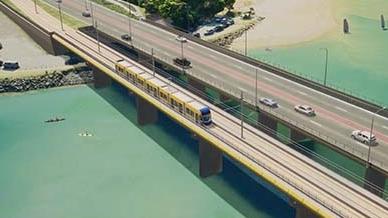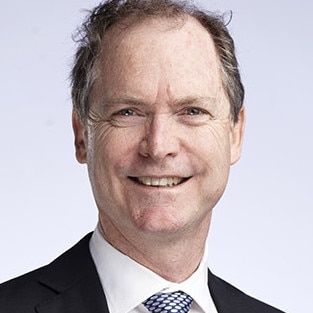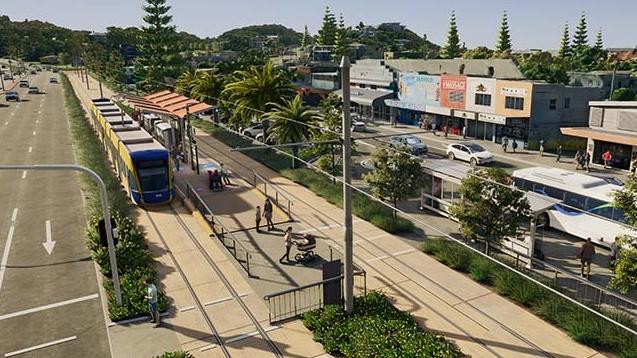Editorial: Rail projects a must for legacy of Brisbane 2032 Games
What is the point of hosting the 2032 Brisbane Games – the biggest event in the world – if we don’t use it as an excuse to bring forward the timeline for some major region-changing projects, writes the editor.
QLD News
Don't miss out on the headlines from QLD News. Followed categories will be added to My News.
The Palaszczuk government paid $788,317 to consultant Deloitte to consider appropriate governance arrangements for the 2032 Games.
One of its recommendations was that there was no need to set up an independent infrastructure body – the government’s preferred option, but a position different to the plans in the original bid, which had in it an Olympic Co-ordination Authority that sat outside of government.
But that is all now water under the bridge.
We now have a Brisbane 2032 Co-ordination Office being established in the Premier’s own department run by experienced bureaucrat Graham Fraine.
The good news is that the system works, and there are plenty of other mechanisms in place to ensure there is adequate external exposure of the decisions being made and work being done inside the state government as we count down towards the Opening Ceremony on Friday, July 23, 2032.

One such mechanism is the federal parliament’s inquiry system, and already the Coalition and the Greens have established a Senate inquiry into Australia’s preparedness to host not only the 2032 Games but also the 2026 Commonwealth Games in Victoria.
And it is through this process that we today learn that both the Gold and Sunshine Coast councils are getting seriously worried about the lack of action from the state and federal governments on the transport infrastructure that will be required not only to host the Games but also to support the growth of their cities over the next two decades.
For the Sunshine Coast, this is heavy rail from Beerwah to Caloundra and Noosa. For the Gold Coast, it is the extension of its light rail network to the city’s airport.
The Sunshine Coast sees “great risk to the success of the Games” if the rail extension is not delivered by 2032.
The Gold Coast considers the 13km state 4 light rail extension from Burleigh to Coolangatta via the airport “critical” when it comes to the Games. Neither of the two projects have any locked-in funding from either the state or federal governments, which will have to pay for the new lines.

While there is of course some obvious self-interest from both councils here, they are also both speaking the truth.
Imagine how much easier a visit to the Gold Coast will be (for those who have to fly in) when there is a light rail service from the airport all the way along the beach from Coolangatta in the south to Southport in the north.
Think also about how life changes for those who battle the Bruce Highway commute every morning from the Sunshine Coast if they can instead catch a heavy rail Citytrain into Brisbane and then home again after work – and vice versa too, when a trip up the coast for the weekend could be taken easily on a train ride that takes about an hour and a half to Maroochydore and never has to slow for traffic.
There are just so many clear – massive – benefits for both that it is surprising the state government is yet to commit to either.

Yes, there are assessment processes to be done, but those do not have to be a handbrake on a general commitment from the Premier.
It was, after all, the need to build necessary transport projects like these that formed the catalyst for the bid in the first place.
What is the point of hosting the biggest event in the world if we don’t use it as an excuse to bring forward the timeline for some region-changing projects – ones that protect our lifestyle.
Tough laws alone will not fix crime
Mick Palmer makes a great point when he says politicians should have the courage to take a longer term view when it comes to the scourge of youth crime than just focusing on introducing ever-tougher penalties, and instead invest in early intervention and rehabilitation programs.
The former commissioner of the federal police also points out that the optimists among us would see the current youth crime crisis as an opportunity for the Palaszczuk government to resist the pressure to be tough on crime and instead “do what successive governments have failed to do, and adopt a smarter approach to justice reform”.
We agree.
It is why our Enough is Enough campaign in February did not demand from the government the predictable responses like mandatory sentencing or GPS trackers.
Instead we sought a commitment from both the government and the opposition to publicly publish every six months the state’s results on the key indicators that experts say are central to addressing the challenge.
These measures relate to reoffending rates among all juveniles who have contact with the justice system, the fact that there is a far too high proportion of Indigenous children in detention, and the number of serious repeat offenders – the group responsible for almost half of all youth crime.
Both sides agreed to our request. That was three months ago.
We await with interest the update on the metrics that is due in August.




